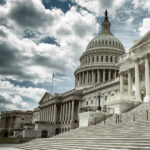On September 3, 2025, the U.S. government filed a petition for a writ of certiorari requesting that the Supreme Court review on an expedited basis the 7-4 decision of the U.S. Court of Appeals for the Federal Circuit, which found there was no legal right to impose tariffs under the International Emergency Economic Powers Act (IEEPA). In its decision, the Federal Circuit vacated the Court of International Trade’s injunction and remanded for the CIT to reevaluate the propriety of granting injunctive relief and the proper scope of relief. The Federal Circuit also issued an order withholding issuance of the mandate through October 14, 2025, or if a petition for writ of certiorari is filed, through the Supreme Court’s denial of certiorari or the Supreme Court’s judgment if certiorari is granted. If the Supreme Court agrees to review the case, it remains to be seen whether it will decide the case under its emergency docket, which could result in a quicker decision, or under its normal procedures, which would mean a decision would likely be issued in 2026. For now, the tariffs remain in effect.
The Federal Circuit’s Narrow Decision
The Federal Circuit issued its highly anticipated decision on August 29, 2025, holding that the tariffs imposed by President Trump on nearly all goods from nearly every country are not authorized under IEEPA. Notably, the Federal Circuit’s majority decision is limited to the tariffs imposed under IEEPA in Executive Orders Nos. 14193, 14194, 14195, 14257, and 14266. Tariffs imposed under other Executive Orders, and tariffs imposed pursuant to other statutory authorities, such as Section 232 of the Tariff Expansion Act of 1962 and Section 301 of the Trade Act of 1972, are not affected by the Federal Circuit’s decision.
After affirming that the CIT had subject matter jurisdiction of the underlying action (which in turn confers jurisdiction upon the Federal Circuit), the Federal Circuit’s majority examined the statutory text and compared it to other statutes, noting that the authority bestowed on the President under IEEPA does not explicitly include the power to impose “tariffs” or “duties,” or the power to “tax.” The Federal Circuit also observed that IEEPA has never before been invoked to impose tariffs on imports or adjust their rates. The Federal Circuit ultimately concluded there was no clear congressional authorization in IEEPA for tariffs of the magnitude of those imposed in the five Executive Orders subject to the litigation. After reaching this conclusion, the Federal Circuit addressed the Yoshida opinion issued by the Federal Circuit’s predecessor court, which had interpreted identical language in IEEPA’s predecessor statute (i.e., “regulate…importation”) as allowing tariffs issued by President Nixon where the tariffs were limited in time, scope and amount. The Federal Circuit found that even if Congress had ratified Yoshida’s understanding of the term “regulate,” the IEEPA tariffs at issue exceeded the authority provided by the Yoshida court’s interpretation.
Remand on Injunction Issue
Although the Federal Circuit affirmed the CIT’s decision, it vacated the CIT’s injunction and remanded the case in light of the Supreme Court’s intervening decision in Trump v. CASA, Inc, which involves the authority to issue universal instructions. In its underlying decision, the CIT had issued a universal permanent injunction against the affected tariffs, though it later stayed the injunction pending appeal. The stay is likely to remain in place should the Supreme Court decide to take up an appeal by the government.
Additional Views and Dissent
Four of the judges that joined the majority’s decision also wrote a separate concurrence expressing additional views that IEEPA does not authorize the President to impose any tariffs. The judges concluded that the government’s expansive interpretation of the term “regulate” is not supported by the plain language of IEEPA, that the Yoshida opinion does not overcome the plain meaning of the statute, and that the government’s understanding of the scope of authority granted by IEEPA would render it an unconstitutional delegation.
In addition, four judges issued a dissenting opinion concluding that summary judgment was not warranted on either statutory or constitutional grounds. The judges opined that IEEPA’s language, confirmed by the legislative history, authorizes tariffs to regulate importation and that the major questions doctrine does not call for a different statutory conclusion. They also concluded that IEEPA’s authorization of presidential action is not an unconstitutional delegation of legislative authority.

